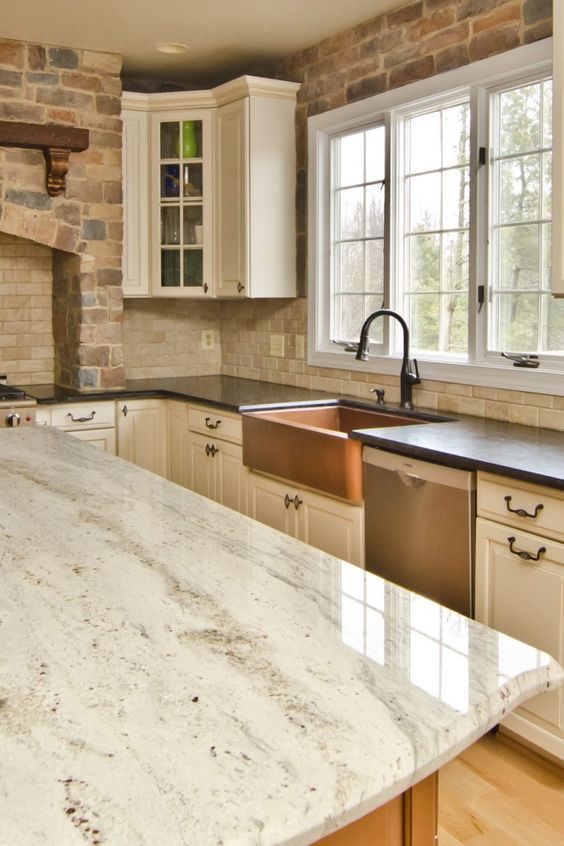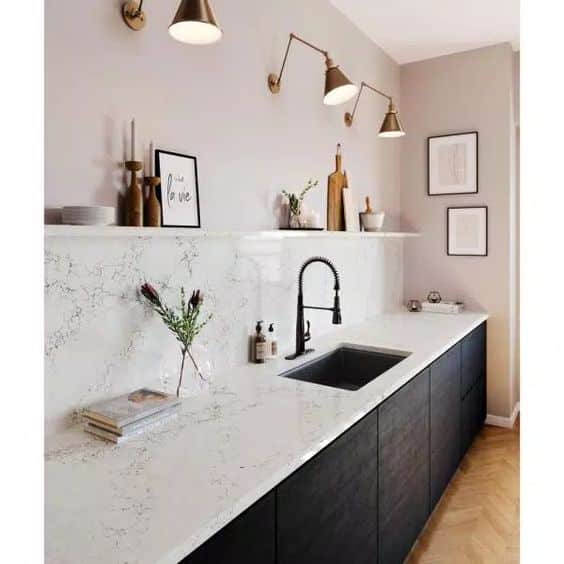When considering a kitchen remodeling project, the impact of countertop choices cannot be overstated. These surfaces not only define the aesthetics of your kitchen but also its functionality and durability. From granite to quartz and marble, each material offers unique benefits and maintenance needs that can significantly alter the look and feel of your space.
Exploring Countertop Materials
Granite

Countertops News
A natural stone known for its durability and unique patterns.
- Benefits: Heat-resistant, adds value to your home.
- Maintenance: Requires sealing to prevent stains.
Quartz

The Home Depot
An engineered stone with a wide variety of colors.
- Benefits: Non-porous, resists staining without sealing.
- Maintenance: Simple cleaning with soap and water.
Marble

Shayna @ The Wood Grain Cottage | DIY & Home Décor Blogger
Offers unparalleled beauty with its distinct veining.
- Benefits: Timeless elegance, naturally cool surface.
- Maintenance: Needs sealing, prone to etching and stains.
Making the Right Impact
The impact of countertop choices extends beyond aesthetics. For instance, granite can endure high temperatures, making it perfect for avid cooks. Quartz, being non-porous, offers a hassle-free option for busy kitchens. Marble, while requiring more care, injects a luxurious feel into the space.
Practical Considerations
Choosing the right countertop involves balancing beauty with practicality. Consider your kitchen’s daily demands and select a material that aligns with your lifestyle. For example, granite suits those who entertain often, while quartz is ideal for easy maintenance.
FAQs on the Impact of Countertop Choices
How do countertop materials affect kitchen resale value?
Quality materials like granite and quartz can increase home value, appealing to buyers with their durability and aesthetic.
Can I mix and match countertop materials in my kitchen?
Yes, combining materials can enhance functionality and create visual interest, such as using marble for baking areas and quartz for heavy-use surfaces.
How often should I seal natural stone countertops?
It varies by material and usage, but generally, sealing every one to two years is recommended to maintain stain resistance.